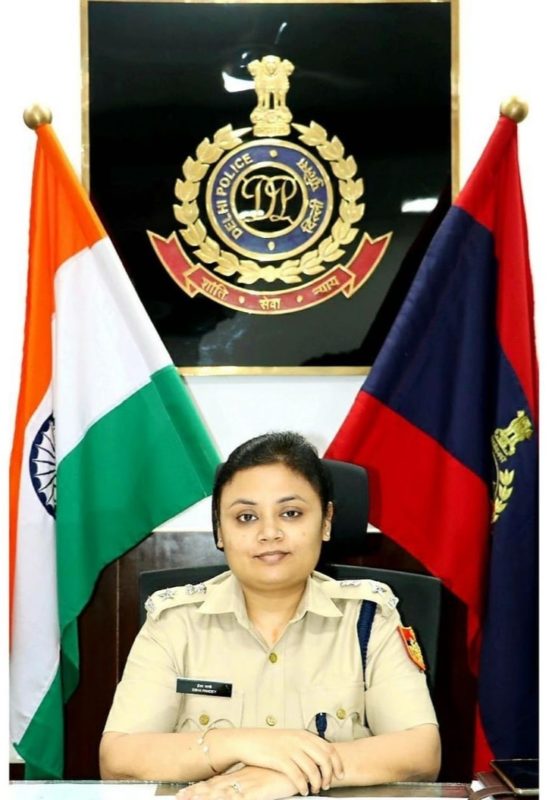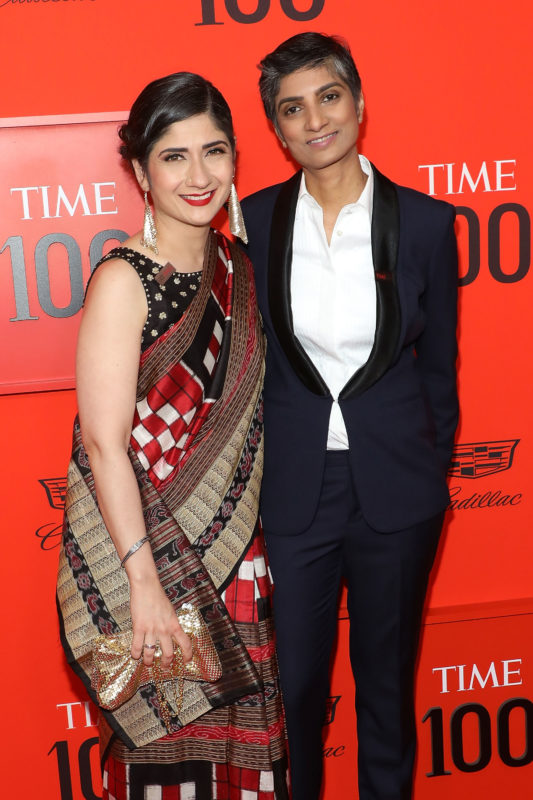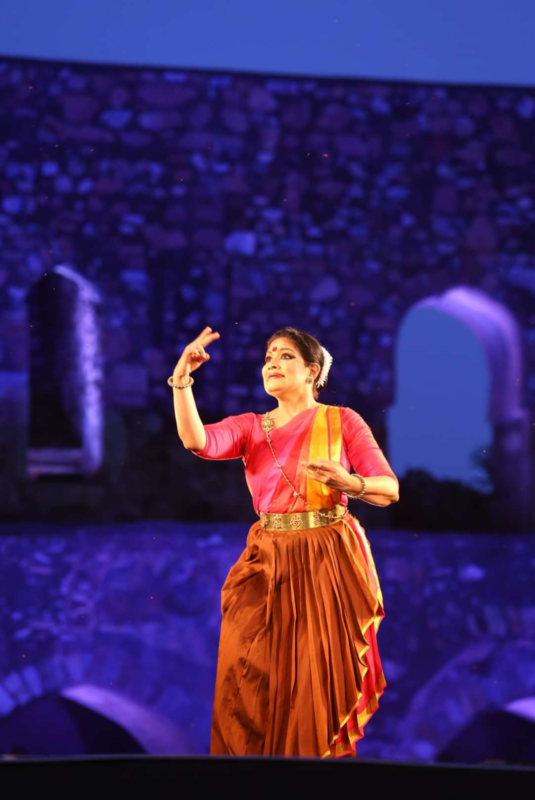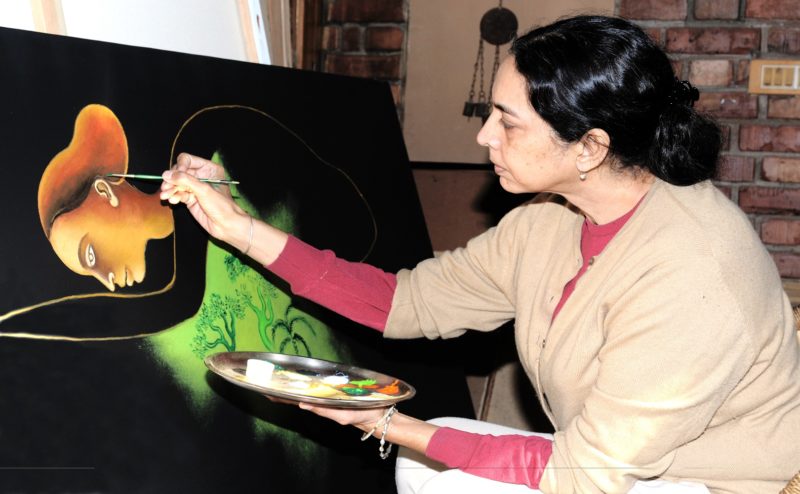Kusha Kapila, Content Curator
An internet sensation, Kusha Kapila makes her audience laugh with her relatable daily life humour. She comes from a joint family in Pitampura, where her childhood was extremely disciplined. Her mother made sure she was a ‘good girl’ who did well in academics. After completing her graduation in English Honours, she went to study at National Institute of Fashion Technology (NIFT).
Kapila was always a performer, doing theatre and street plays during her college days. “I would also imitate people really well”, she recalls. So far, the most remarkable moment of her life was landing a job in a prominent online publication and moving towards video creation.
Curating content and videos that almost everyone in Delhi can relate to is her plus point. She has over 2 million followers on Instagram. As an influencer, she talks about social issues with a generous dash of humour.
Kapila has fan bases from all age groups. As she started making space for herself on social media, trolls popped up. She says tongue-in-cheek that you become influential when you get trolled. That’s the point where she understood that what she says actually matters. Social media is a platform that’s updated every day, so keeping up with the algorithms has been a challenge for her.
As a woman, she feels that there is an added pressure to look good, apart from being talented. She was part of Netflix’s ‘Behensplanning’ reality shows and comedy gigs. Currently, she is focusing on Instagram as a platform for video creation.

Esha Pandey, IPS
Last year, for the first time, Delhi Police could boast of women IPS officers as Deputy Commissioner of Police for six of the fifteen districts of Delhi. Esha Pandey is one of them and has worked efficiently as the southeast district DCP over the last five months.
She started out with other goals in life. With a degree in mass media communication and journalism, Esha started working as a columnist with The Times of India. She simultaneously prepared for the civil services exams and got into the Indian Police Service.
When her parents got married, their family wanted them to bear a son. Instead, her parents gave birth to three daughters. Regardless, Esha says her parents have given her all the love and support she needed throughout her life, and are extremely proud of her achievements. It is this support from her family that has always motivated her to achieve her goals in life. “My woman colleagues and I are prime example of how much a girl can achieve with a little confidence and a lot of parental love”, Esha writes in one of her columns.
Esha was inspired by the television series Udaan, which was the story of IPS Kanchan Chaudhary of the 1973 batch, the second woman IPS officer in India. She has also stated that she is grateful for, and motivated by the women who have fought patriarchy at home, office and field to pave the way for young women officers like her, further allowing them to commandeer equal treatment.
In the last few months, Esha has worked on cases involving cyberbullying, sexual assault, and harassment, among others. Not only has she led the police squad for the Southeast District, but she has also used her talent with the pen to write about the issues that matter. She fights for injustice on the field, and from the comfort of her home using her words. Quite an inspiration for young women today.

Arundhati Katju and Menaka Guruswamy
Litigators by profession, the lesbian couple Arundhati Katju and Menaka Guruswamy, 36 and 44 at the time, were instrumental in the 2018 verdict which struck down Section 377. Guruswamy had called Section 377 “a colonial stain on our collective national conscience” during her conversation with her alma mater, the University of Columbia. A 158-year old provision of the Indian Penal Code, it was a relic of India’s colonial past that criminalised ‘unnatural’ intercourse.
Both of them are notable lawyers with significant roles in several landmark cases, including the Augusta Westland bribery case, Jessica Lal murder case as well the 2G spectrum corruption case.
Before the 2018 verdict, the apex court (where the two worked then) had upheld the criminalisation of same-sex relations in 2013, a moment that moved this couple to act. The same court had told them back then that homosexuals are in essence second-class citizens. To the duo, it was also a personal loss, as the couple still lived a closeted life.
At the time of the Supreme Court hearings in 2018, the couple brought together over two dozen homosexual Indians as co-petitioners, who also claimed to feel threatened by the existing provision and wanted it struck down.
After their arguments for the case, the bench of judges had decided on decriminalising the law that was perceived to be draconian and unconstitutional by the LGBTQIA+ community.
While the couple became overnight heroes for India, their win was also noted and cited as a precedent in the case against the laws that prohibit same-sex relations in Kenya. Besides these accolades, they have also made it to the TIME 100 most influential global figures in 2019. On their win that year, they called it a professional achievement as well as a personal victory as the duo revealed that they were also a couple soon after.
Aparna Caur, Painter
Portraying life around her in its vitality, Aparna Caur is a painter and graphic artist born in 1954. She is the daughter of renowned Punjabi writer Ajeet Caur, who fled Pakistan during Partition. After completing a post-graduation in literature from Delhi University, she was drawn into art.
Tentative and shy when young, it was through art she discovered her identity. “In the 1970s, when I started my career, no one took women artists seriously. The first few years were difficult, after 20 over years things changed as women artists got featured in auctions and international exhibitions”, says Caur. Her mother supported her financially and mentally throughout her career and even now at 88, her mother is her pillar of strength.
Taking inspirations from literature as well as her surroundings, Caur explored various forms like oil painting, murals, book illustrations and sculptures. Her works highlight issues of victimisation. With the strong influence of her mother, her works have women in focus like the widows of Vrindavan and the rape of Maya Tyagi. Each stroke from her brush gives lives to characters and stories.
Aparna’s work ‘Tears of Hiroshima’, is a multimedia installation. The 1984 anti-Sikh riots were a personal trauma as she lived through the violence only to be told to vacated her rented house at Neeti Bagh. She depicted the riot as she witnessed it, and depicted the brutality against Sikhs with ‘scissors’ as a motif.
Caur is one of the first artists to collaborate with folk artists from Warli and Godna. Apart from that, her work takes influences from miniatures, Buddha, Nanak, Kabir and Sufi thought. Some of her acclaimed non-commercial mural works are Buddha mural on the outer wall of Vankalappa Art Gallery Bangalore, murals on the titles outer wall of SAARC Secretariat, Kathmandu, ‘Time’ in Hamburg, Germany among others. She has also done illustrations for her book The Man who never wore a Watch, Khushwant Singh’s Hymns of the Sikh Gurus, and Maya Dayal’s Nanak the Guru among others.

Geeta Chandran, Dancer
Renowned dancer Geeta Chandran took her first step towards Bharata Natyam when she was five years old. Today, she is also a trained Carnatic singer and has experimented with theatre, videos and films. Having been in this field for the past 55 years, she is also the artistic director of Natya Vriksha Dance Company. She received the Sangeet Natak Akademi Puraskar in 2016.
Chandran started teaching dance in the 1990s. She asserts that dance should be taught at a tender age. She is one of the first dancers to incorporate social issues along with pure dance forms in her own production. As political beings, she feels that we need to be politically and socially responsible.
Her rhythmic taps on the floor, eye movements and pulsating hand gestures keep the audience glued to their seats. She tries to express poetry through her dance, with precise hand mudras and expressions. Over the years dance, has undergone various changes, the form and style have changed. But what remains constant is the expression of it.
As an artiste, Chandran doesn’t believe that spirituality is inevitable for an artist’s journey. Everybody is different, with different perspectives on life. There are believers and non-believers, who provide varied intensity and discipline through dance. For Chandran, the engagement with devotion and bhakti transformed over time. In ‘Sangam Leela’, one of her productions, bhakti emerges as the thematic foundation in her own life journey.
She published her biography So Many Journeys co-authored by Rajiv Chandran, in which she shares the joy and satisfaction she feels as a professional dancer.
For more stories that cover the ongoings of Delhi NCR, follow us on:
Instagram: https://www.instagram.com/thepatriot_in/
Twitter: https://twitter.com/Patriot_Delhi
Facebook: https://www.facebook.com/Thepatriotnewsindia






